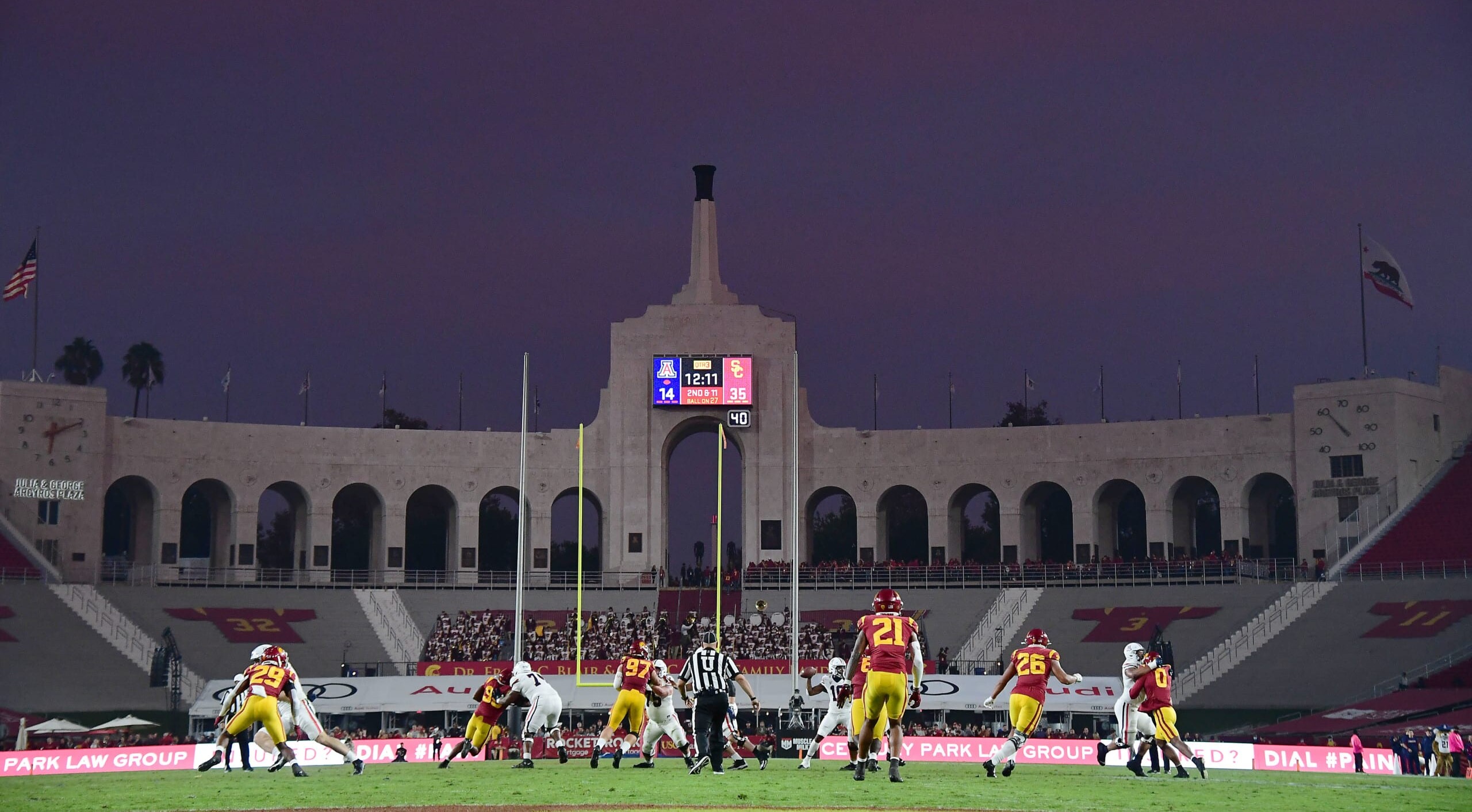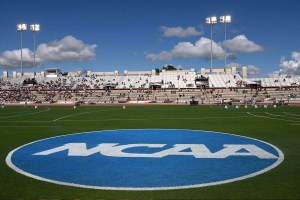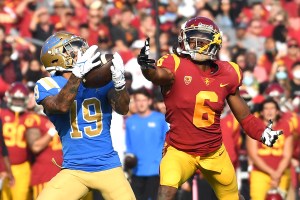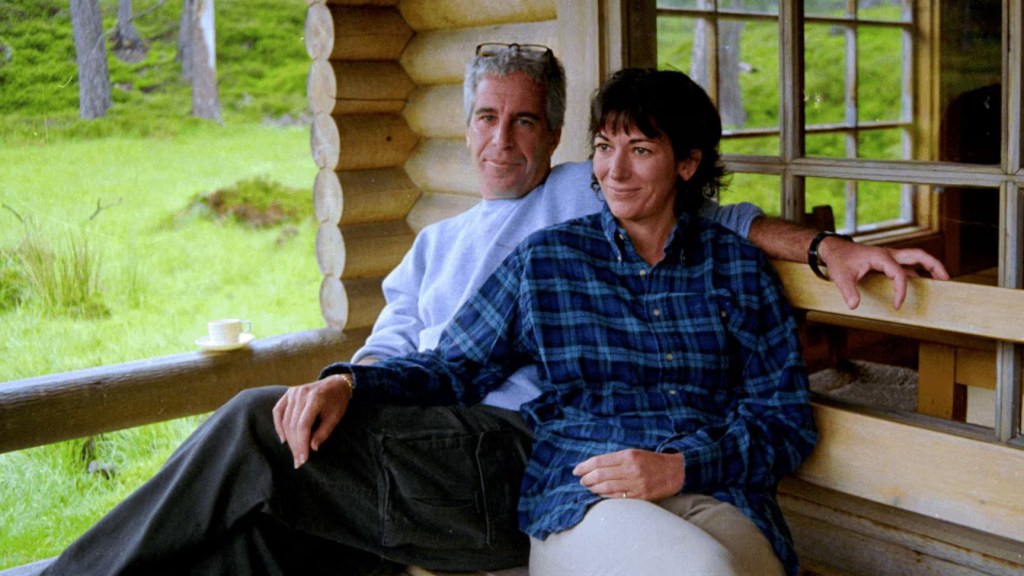PHILADELPHIA — At the U.S. Third Circuit Court of Appeals on Wednesday, a panel of three judges attacked the NCAA’s business model of amateurism during a hearing for the Johnson v. NCAA case. They asked searing questions about why athletes aren’t employees — and at some points drew laughter from the mostly filled courtroom. One judge flat-out said he didn’t agree with the NCAA.
The case was originally brought by a group of athletes who are suing several schools and the NCAA, alleging they should be classified as university employees under the Fair Labor Standards Act, rather than amateurs. They claim they’re entitled to minimum wage in addition to scholarships.
Lawyers for the athletes told Front Office Sports they don’t believe that an NCAA loss would spell the end of college sports, as the NCAA seems to suggest. It would, however, effectively kill the governing body’s core principle of amateurism.
Steven Katz, the lawyer for the NCAA who argued the case, said after the hearing he did not have a comment. The athletes’ lawyer Michael Willemin said that while he didn’t want to speculate about the judge’s final decision, he believed the “district court got it right” in the first place.
“You can never take too much away from oral arguments,” Boise State sports law professor Sam Ehrlich told Front Office Sports. “But the focus of the discussion can’t be something the NCAA is too comfortable with.”
In The Courtroom
The hearing itself concerned a rare type of appeal called an “interlocutory appeal,” which reviews a decision made by a lower court judge in the middle of a case, rather than the final verdict. The issue, which the NCAA asked the court to review, was whether college athletes could plausibly be deemed employees.
The most resounding indictment of the NCAA came from Judge Theodore McKee, who stated point-blank that he didn’t understand how athletes couldn’t be considered employees.
Judge Luis Felipe Restrepo added: “How are they not employees of the universities?” and referred to athletic departments as “regimes.”
Much of the conversation revolved around “whether there was an expectation of compensation,” Ehrlich noted — whether athletes expected to be paid, and if that could be evidence that they’re employees.
Judges also asked whether there could be a distinction between athletes who play sports that bring in significant profit, like Power 5 football players, and those that don’t. McKee, for example, asked the court to consider a hypothetical in which no one watched the Rose Bowl, and March Madness was renamed “March Wasted Time.” Would athletes still be employees in that case?
Ehrlich said that line of questions suggests the judges believe revenue-sport athletes could be employees.
Willemin, the athletes’ lawyer, said the money an athlete makes — or expects — doesn’t necessarily define employment status. Instead, it’s the “control” the NCAA exerts on athletes. After all, schools control every aspect of athletes’ lives, from how many hours they attend “optional” practices to what classes they can take.
In all, the hearing took more than twice the allotted time. The judges’ panel was highly engaged, and appeared educated on how college sports work.
“It felt a lot like the [NCAA v. Alston] oral arguments in my eyes, where the NCAA was forced into a position where they had to justify themselves a lot, and the athletes were only asked about the legal intricacies and the extent to which an eventual decision should apply,” Ehrlich said. The NCAA lost the Alston case at the Supreme Court level 9-0.
Next Steps
The appeals court will likely not hand down a verdict for at least a few months.
If athletes win the appeal, the case will proceed. However, the NCAA won’t immediately have to start paying players — nothing will be official until the case reaches its conclusion. If they lose, it will get thrown out. Of course, both sides could continue to appeal.
In the past, other federal courts, like the Ninth Circuit and the Seventh Circuit, have agreed that college athletes aren’t employees.
But there’s plenty of evidence to suggest that the tides are turning in the athletes’ favor, from the Alston case to the judges’ own commentary. Judge Restrepo appeared to invalidate the Seventh Circuit decision, saying the decision “was basically, ‘they’re amateurs because they’re calling them amateurs.’”
Either way, expect the NCAA to appeal the case up to the Supreme Court if it loses.
Plaintiffs’ Proposal
Both Willemin and his co-counsel, Paul McDonald, said that the NCAA has claimed paying players would bring about a “parade of horribles” — from decreased resources for women’s sports to the death of college sports altogether.
But the two contend that a post-Johnson world wouldn’t be nearly as much of a disruption to college sports as the NCAA claims.
“I don’t give any credence to the NCAA’s claims that there’s going to be some sort of massive fallout from having to pay individuals minimum wage,” Willemin said.
McDonald noted the case is simply asking for players in Division I to receive minimum wage based on hours worked. Anything else, like collective bargaining, would be adjudicated outside this case — like at the National Labor Relations Board. (And yes, the NLRB is going to rule on this issue.)
McDonald noted that athletes already submit time sheets for how many hours they play — so there’s an infrastructure to pay them. He also said schools could look at how they handle work-study, where other non-athlete students are paid for jobs around campus in addition to their scholarship.
The big question, of course, is where schools would come up with the money. But if the increasing media rights contracts and coaching salaries are any indication, there’s more than enough to go around.




![[Subscription Customers Only] Jul 13, 2025; East Rutherford, New Jersey, USA; Chelsea FC midfielder Cole Palmer (10) celebrates winning the final of the 2025 FIFA Club World Cup at MetLife Stadium](https://frontofficesports.com/wp-content/uploads/2026/02/USATSI_26636703-scaled-e1770932227605.jpg?quality=100&w=1024)














